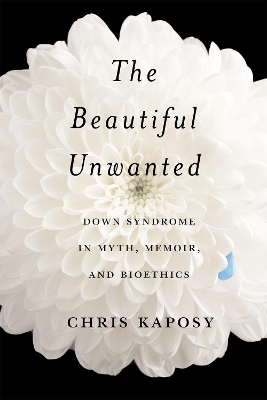
The Beautiful Unwanted
Down Syndrome in Myth, Memoir, and Bioethics
Seiten
2023
McGill-Queen's University Press (Verlag)
978-0-2280-1900-8 (ISBN)
McGill-Queen's University Press (Verlag)
978-0-2280-1900-8 (ISBN)
Chris Kaposy reflects on parenting his son with Down syndrome in the midst of a supposed disappearance of people with this condition. Writing from a pro-choice, disability-positive perspective, Kaposy presents decades-old bioethical controversies, revealing the prehistory that has shaped current attitudes toward intellectual disability.
Prenatal genetic testing has changed the circumstances under which parents choose what pregnancies to carry to term. Some have predicted that as a result of parents’ choices, people with Down syndrome will disappear from our communities in the near future. Chris Kaposy, a bioethicist who has a son with Down syndrome, reflects on parenting his son in the midst of this supposed disappearance.
Writing from a pro-choice, disability-positive perspective, Kaposy presents some of the decades-old bioethical controversies involving children with Down syndrome, illustrating a prehistory of disappearance that has shaped current attitudes toward intellectual disability. Layered throughout this history are elements of Kaposy’s personal experience with his son and family. Transcending monograph and memoir, The Beautiful Unwanted draws creatively upon the past and the present, upon myth, history, science, and personal stories, to present the world of families that include children with Down syndrome from a series of uncommon perspectives. This account encompasses the changeling myths of Newfoundland, the “discovery” of Down syndrome by John Langdon Down and Jérôme Lejeune, and the twentieth-century experience of institutionalization, as well as recent advances in reproductive technology.
We must recognize that we have some control over the future, Kaposy argues, and we must ask what kind of future we want for those who have intellectual disabilities. The Beautiful Unwanted poses this question in a way that is engaging, often bewildering, and always fascinating.
Prenatal genetic testing has changed the circumstances under which parents choose what pregnancies to carry to term. Some have predicted that as a result of parents’ choices, people with Down syndrome will disappear from our communities in the near future. Chris Kaposy, a bioethicist who has a son with Down syndrome, reflects on parenting his son in the midst of this supposed disappearance.
Writing from a pro-choice, disability-positive perspective, Kaposy presents some of the decades-old bioethical controversies involving children with Down syndrome, illustrating a prehistory of disappearance that has shaped current attitudes toward intellectual disability. Layered throughout this history are elements of Kaposy’s personal experience with his son and family. Transcending monograph and memoir, The Beautiful Unwanted draws creatively upon the past and the present, upon myth, history, science, and personal stories, to present the world of families that include children with Down syndrome from a series of uncommon perspectives. This account encompasses the changeling myths of Newfoundland, the “discovery” of Down syndrome by John Langdon Down and Jérôme Lejeune, and the twentieth-century experience of institutionalization, as well as recent advances in reproductive technology.
We must recognize that we have some control over the future, Kaposy argues, and we must ask what kind of future we want for those who have intellectual disabilities. The Beautiful Unwanted poses this question in a way that is engaging, often bewildering, and always fascinating.
Chris Kaposy is a bioethicist in the Faculty of Medicine at Memorial University.
| Erscheinungsdatum | 03.10.2023 |
|---|---|
| Verlagsort | Montreal |
| Sprache | englisch |
| Maße | 152 x 229 mm |
| Themenwelt | Literatur ► Biografien / Erfahrungsberichte |
| Sachbuch/Ratgeber ► Geschichte / Politik | |
| Geisteswissenschaften ► Philosophie ► Ethik | |
| Geisteswissenschaften ► Psychologie ► Entwicklungspsychologie | |
| Naturwissenschaften ► Biologie | |
| Sozialwissenschaften ► Soziologie | |
| ISBN-10 | 0-2280-1900-1 / 0228019001 |
| ISBN-13 | 978-0-2280-1900-8 / 9780228019008 |
| Zustand | Neuware |
| Informationen gemäß Produktsicherheitsverordnung (GPSR) | |
| Haben Sie eine Frage zum Produkt? |
Mehr entdecken
aus dem Bereich
aus dem Bereich


